
This past summer, Jewish congregations in communities throughout Connecticut welcomed new clergy. The Ledger is pleased to introduce this new group of rabbis and cantors.
By Stacey Dresner
Rabbi Rachel Zerin
Beth El Temple, West Hartford
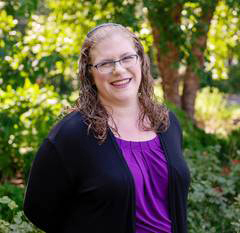
Rabbi Rachel Zerin has joined Beth El Temple in West Hartford as assistant rabbi. She comes to Beth El from Temple Emanu-El in Providence, R.I. where she served as spiritual leader for five years.
Growing up in Billerica, Massachussetts, Zerin and her family attended Temple Beth El in nearby Lowell.
“I grew up in a very small congregation but, in large part that’s what led me to where I am today because it afforded me a lot of opportunities to be involved,” she says.
While preparing for her bat mitzvah, Zerin and her mother attended services. It was then that her interest in Judaism was sparked.
“I’ve also always been musical. So, as soon as I celebrated my bat mitzvah, I was a person in the congregation who knew how to lead services and had a beautiful voice,” she recounts. “We had no cantor at the time, so I became one of the regular service leaders and periodic Torah readers. Once I finished our religious school program I co-taught in the religious school for the little kids. So, I had a lot of leadership opportunities from a pretty young age.”
She started studying music at college, dreaming of being on Broadway or becoming a professional opera singer.
“That first year of college when I did not have a strong Jewish community around me, I very quickly realized that [Judaism] wasn’t just an extracurricular activity; it really was the lifeblood of who I am and who I want to be,” she says.
She transferred to Syracuse University and majored in Voice Performance and Religion.
“When you’re a singer and you are majoring in Religion, the assumption is, well of course you’re going to become a cantor. So initially I thought that might be the direction I was headed in,” she said. “I do love music and I do love singing and I do love leading services, but I also really love the text study, the teaching and the ritual moments that expand beyond the music. I just felt that I had so many more possibilities as a rabbi and so many more opportunities open to me as a rabbi, and so that was what veered me towards rabbinical school.”
After graduating from Syracuse, she spent a year studying at the Conservative Yeshiva in Jerusalem before entering the Jewish Theological Seminary. She was ordained in 2015 and in 2016 received her MA in Talmud and completed a unit of Clinical Pastoral Education (CPE).
Since starting her position at Beth El in July, Zerin has been busy getting to know the Beth El community and West Hartford.
“At first, I was meeting people and able to see their full faces but now it’s back to masks. We are having services in person, but my sense is, we have just as many people watching online as we do physically present in the sanctuary. So, it’s an interesting time to be starting in a new congregation.
“But the community has just been wonderful,” she says. “So many people have reached out. It’s a really warm and welcoming community and West Hartford is a great place – It just feels like the perfect balance of everything I’m looking for in a community.”
Rabbi Zachary Plesent
Assistant Rabbi Temple Israel, Westport
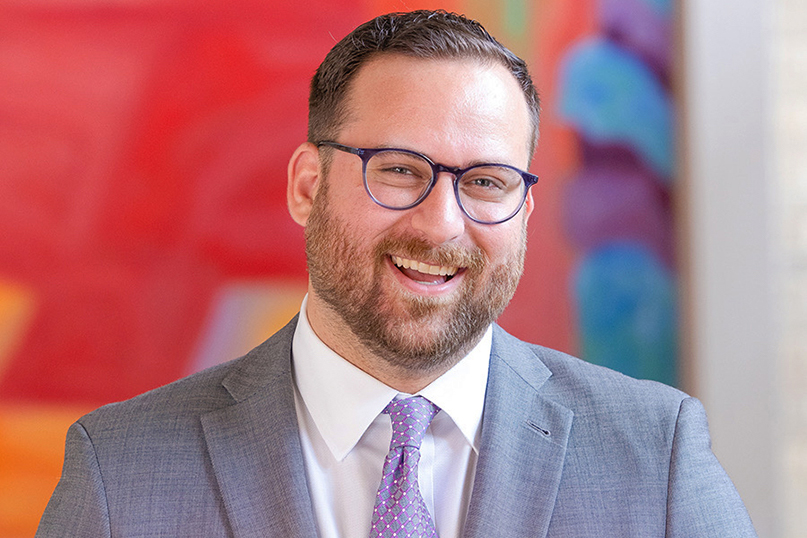
Zachary Plesent double majored in Political Science and Jewish Studies when he was a student at Indiana University.
“One of the things that led me to the realization that I could or should be a rabbi was that so much of what I would have done in the legal profession or the profession of politics is a part of being a congregational rabbi,” he laughed.
Plesent, ordained in May from the Hebrew Union College-Jewish Institute of Religion in New York, joined Temple Israel in Westport as assistant rabbi in July.
A native of Larchmont, New York, Plesent says he was actively involved at Larchmont Temple when he was growing up.
“It was where I was comfortable. It was where I felt good, certainly. It was a point of connection for me,” he explains. “I played sports in high school and I did temple stuff, and those were my two groups outside of public school that made me feel like part of a community which is a connection that so many of us are seeking.”
Early on, his rabbi may have had an inkling Plesent would someday be up on the bimah.
“My rabbi on the morning of my bar mitzvah joked with the congregation and said, ‘Wouldn’t it be good if he were up here in 15 years?’ And everybody laughed. That was sort of the beginning of the thought process,” he says. “I was not sold on it until I finished college and realized that everything I love and feel passionate about and feel like I can do good for the world, can be a part of Jewish communal life.”
After graduation from Indiana University in 2014 and before rabbinical school, Plesent worked as a full-time educator and song leader at Central Synagogue in New York City. While in school, he served Jewish communities in Greenwich, White Plains, and Laramie, Wyoming. He was selected to participate in the Bonnie and Daniel Tisch Rabbinical Fellowship, and was the recipient of a Be Wise Entrepreneurial Fellowship. He was also a member of the New York Worship Working Group, a collective of faculty, rabbinical students, and cantorial students working together to reimagine and refocus various elements of prayer and worship on the HUC campus.
After his ordination, he knew Temple Israel was the place he wanted to be.
“I know all Jewish communities purport to be warm and welcoming, but I really felt that this community … cared about being warm and welcoming. They cared about who we are as a community and not just what we have accomplished or what we offer, but they cared about the warmth of the community, and they wanted to show that,” he says.
In addition, he says, “I get to work with a really talented, exciting, younger team that is poised for growth, innovation and creativity,” he said. “The thing that I was so excited about in this community was that there are four clergy and two of us were just hired July 1. So, the opportunity to build and create and work as a team was exciting for me as a younger rabbi – to be part of a team but also to learn while I begin my rabbinate. It became clear that this is where I wanted to be.”
Julia Cadrain
Senior Cantor, Temple Israel, Westport

For Cantor Julia Cadrain, moving to Westport to serve as senior cantor at Temple Israel in Westport is kind of a homecoming. She grew up in West Hartford, where her parents still reside and where she attended Hall High School, where she was a member of its singing group, the Choraliers. She went on to receive a Bachelors of Music in Classical Voice at New England Conservatory.
“My plan was to get a good classical foundation, and then to become a Broadway star,” she said. “I really liked Broadway music and musical theater because of its ability to kind of speak straight to the heart and be so accessible and so expressive. Then I graduated college and I started to realize that a performers life wasn’t really a good fit for my personality,” she says. “I had this longing for real community and a spiritual home and ritual. I wanted to be using the music to have an impact on people’s lives, but I didn’t really know what form that would take.”
It was while at a High Holiday service the year after graduating from college that she had an “aha” moment.
“Watching the cantor, I thought, ‘That’s what I want to do. That’s my thing.’”
But Cadrain wasn’t exactly sure what being a cantor really entailed.
“West Hartford is a very Jewish town, so growing up I was surrounded by Jewish culture and a lot of Jewish friends,” she says. “I had some Judaism in my home – my dad is Jewish. My mom is not. So we grew up with some with Jewish holidays, and also Christian holidays, I didn’t have a robust Jewish education.”
A few weeks after that High Holiday service she met with the cantor she had been impressed by who described his role and responsibilities in his congregation.
“Everything felt exactly right – it was community, it was teaching, it was a spiritual home, it was ritual. It was using music as a healing tool and a tool to bring people together and it just seemed like the perfect fit and such a rich, rich life. I just fell in love with it.”
She spent the next two years studying with a rabbi and learning Hebrew. She then studied at Hebrew Union College in the Debbie Friedman School of Sacred Music, where she was ordained as a cantor. Right out of cantorial school in 2012, she joined Manhattan’s Central Synagogue.
“It was an absolutely amazing place to ‘grow up’ professionally and spiritually and musically. I had incredible mentors there, in particular Rabbi Cantor Angela Buchdahl, who was just a huge inspiration and mentor for me.”
After nine years, she says it was time to move on. She found Temple Israel to be a good fit.
“I think Temple Israel rose to the top for me because it’s such an exciting place. The synagogue is growing and welcoming new members…The senior rabbi here, Rabbi Michael Friedman, is someone that I knew – he had been a rabbi at Central Synagogue,” she says. “There’s something so sweet about coming back to work in the place where I grew up.”
She moved to Westport in July with her wife, Elana Arian, a Jewish musician and composer, and their two children.
“I’m really excited to lead this congregation in the High Holidays to understand more about them through that experience.”
Rabbi Kevin Peters
Assistant Rabbi/Director of Jewish Education & Youth Programs, Temple Sholom, Greenwich
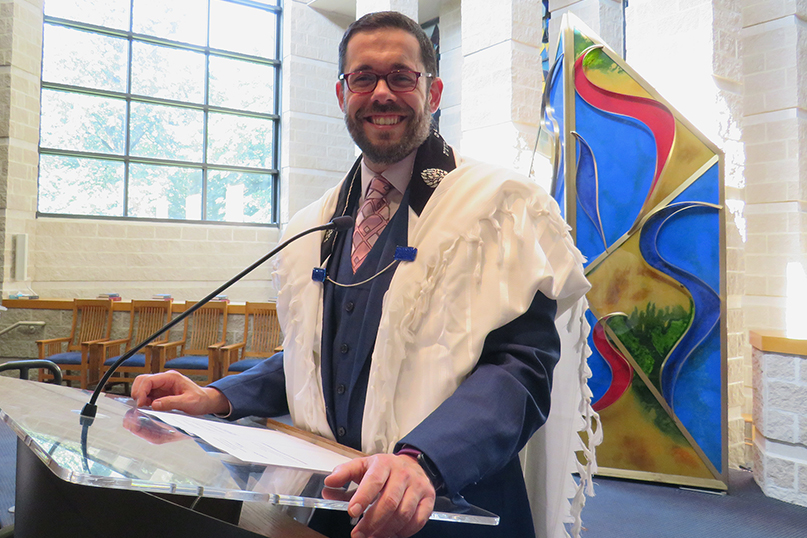
Judaism came later in life for Rabbi Kevin Peters.
“I come from a mixed family – my father was Jewish and my mother is Catholic. I was raised Catholic. When my father passed away when I was 16, that started me on my journey toward Judaism.”
Peters converted to Judaism on his 30th birthday and was ordained a week and a half later turning 40.
Although Peters just became assistant rabbi and director of Jewish education at Temple Sholom in Greenwich in July, he has been at the synagogue for the past three years – first for his Jewish education internship, then for his rabbinical school internship, and then part-time as Jewish educator – he has already forged strong bonds with the congregation.
“I really do care about the community here,” Peters says “They are so wonderful and interesting and diverse.”
Originally from Staten Island, New York, Peters graduated with honors from CUNY, College of Staten Island with a BA in Psychology. He worked for more than seven years in the field of developmental disabilities at an agency on Staten Island called Eden II, for individuals with autism.
Peters himself had been diagnosed with ADHD as a child.
“I think I had always had a calling to be a rabbi, but at some point, I said, ‘I don’t think that is realistic,” he says.
Then, at 30, “I finally started listening to my parents who always said, ‘You have to work three-quarters of your life so you might as well do something that you love.’”
He looked into attending rabbinical school but decided on the field of Jewish education, getting an MA from the William Davidson Graduate School of Jewish Education at JTS. But encouraged by the dean of admissions and assistant dean of the rabbinical school, he went for it, graduating from JTS and receiving ordination this year.
It wasn’t until his second year of rabbinical school that he was diagnosed with a mild case of dyslexia. That and his ADHD, have made him the rabbi he is today.
“The things that make me a better rabbi are the things I don’t take for granted,” he says. “For example, I haven’t been a ‘Jew in a pew’ for a while but when I was, I was always very intentional about holding the siddur open so that people around me could see where we were in the service. So if anyone around me didn’t know where we were, I didn’t want them to have to ask,” Peters explains. “And also, not publicly asking ‘do you want an aliyah?’ because there was a time when, even with transliteration, I struggled to read it. I think being sensitive to those things and having the experience of getting up there and leyning and bombing and saying, ‘Ok,, I’m going to come back up here and do it again!’ is important.”
Peters says he is excited to settle down into this next phase at Temple Sholom.
“I wear a lot of hats here. My responsibilities touch a lot of different facets of congregational life. For that piece of it, I am excited.”
Hazzan Daniella Risman
The Emanuel Synagogue, West Hartford
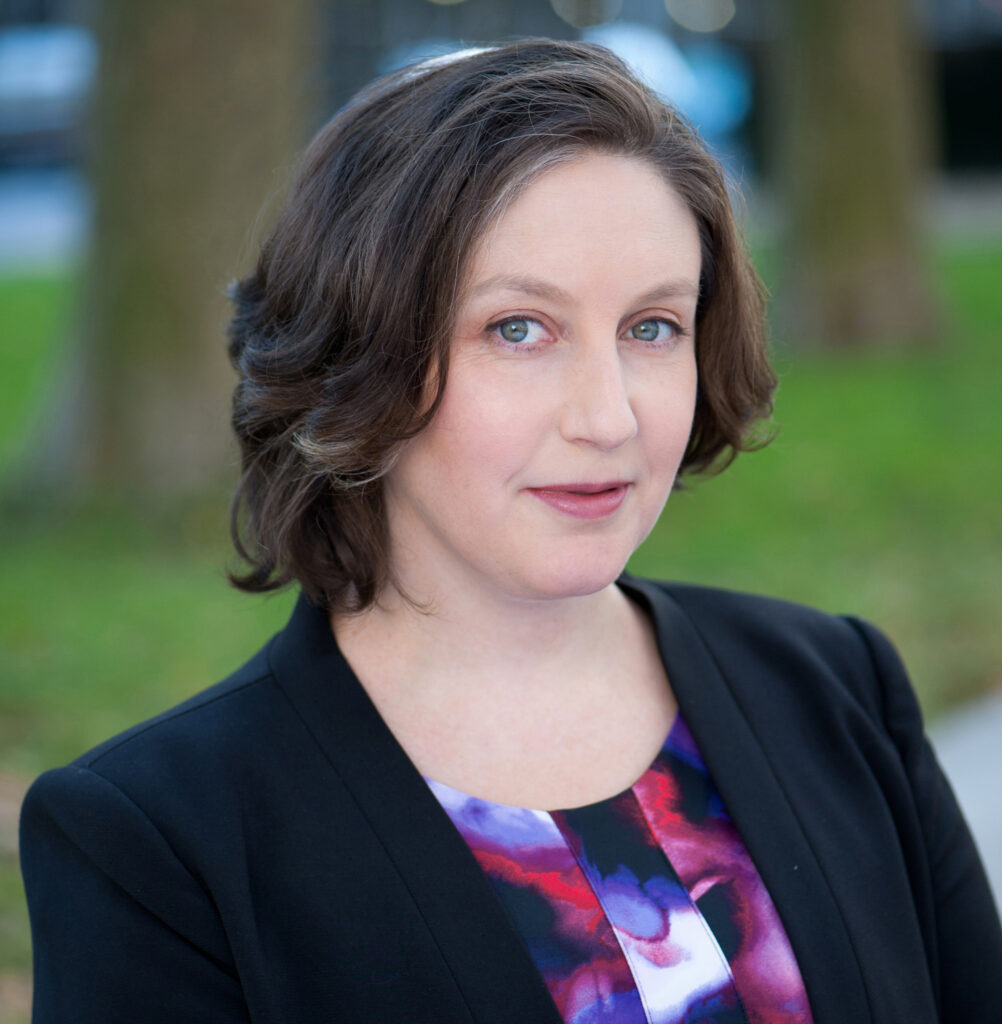
When Daniella Risman graduated from H.L. Miller Cantorial School at the Jewish Theological Seminary in April, she was ‘ordained’ as a cantor – not ‘invested,’ as graduating cantors always have been at JTS.
“It’s exciting,” Hazzan Risman explains. “One of the biggest changes is mostly thinking about the structure of a synagogue and what it means to be a cantor. A cantor isn’t just somebody who shows up on Shabbat and sings high and loud and walks the b’nai mitzvah around and says, ‘stand here, stand there.’ The cantor is there for lifecycle events, for baby namings and visits in the hospital and for funerals and for having a counseling session before a wedding. The cantor is an integral part of the everyday life of the shul and the musical heart of the synagogue. Music is such an integral part of our tradition.”
Born in Israel to American parents who made aliyah in 1973, Risman was raised in the San Francisco Bay area. She was always musical.
“I sang. I played instruments. I played the piano, I played flute, French horn, and I always sang in musicals when I was in elementary school. I took voice lessons in high school and did the high school vocal competitions.”
She attended Oberlin College, where she double majored in music and environmental studies, then went on to get her master’s in voice at the San Francisco Conservatory of Music.
“I was always performing and I also was involved Jewishly. I was co-chair of Hillel and teaching Hebrew school and leading High Holiday services at school. In graduate school I worked for the synagogue I grew up in and also for the Jewish Community Relations Council (JCRC) in the East Bay.”
After getting her master’s she stayed on at the JCRC, but also sang opera at various local small opera companies in San Francisco. After four years, she decided to travel overseas, auditioning in Israel and Germany and doing a summer music program at a synagogue in Paris. When she came home to the U.S., settling in New York to sing opera, she worked in an orthopedic surgeon’s office.
“I got to sit in a room with a patient who was feeling vulnerable and had just been given this diagnosis of needing surgery. I got to be the one who said, “Let’s figure this out. …What do we need to do to support you?’… I really got to directly help people who were suffering. The suffering of body can lead to suffering of spirit. I got to help them take a step toward healing. That was pretty powerful.”
She went on to enroll in cantorial school.
“I realized that was the way to have a life of meaning, of creativity, of helping people and connecting with people, and doing the thing I was already doing, but doing it well. …So I went to cantorial school and I got to study liturgy and nusach, and I got to study with some great cantors of our time. …I hope I’ll be learning for the rest of my life.”
Risman and her husband, Eric Hoffman, are the parents of three-year-old Zahava and one-year-old Judah.
Arriving at The Emanuel has been a joy.
“Everyone has been welcoming and generous,” she says. “Rabbi Small was someone I really thought I could work with, side by side. He is creative and kind and collaborative and learned, and really loves his community. Their well-being matters to him in a way that I admire and in a way that I strive to emulate.”
Rabbi Jesse Nagelberg
Beth El, Woodbury
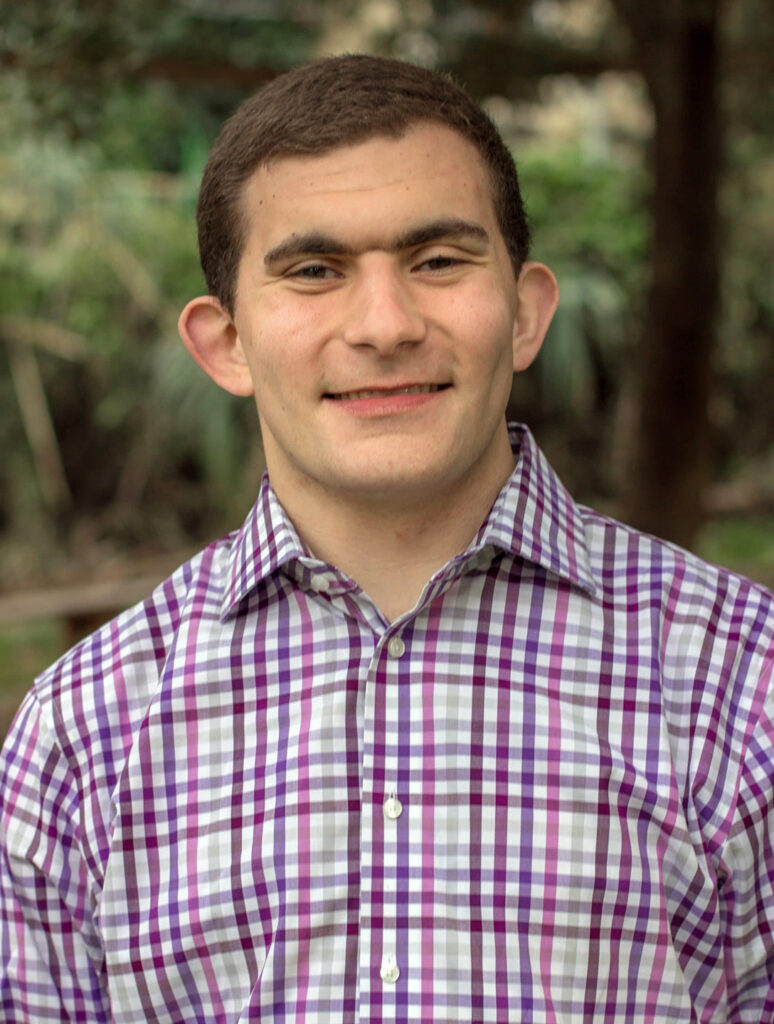
JTS Rabbinical School student Jesse Nagelberg began serving as rabbi of Beth El Congregation in Woodbury at the beginning of August.
(Beth El always hires student rabbis from JTS to serve as spiritual leader for the entire year, from August to July.)
A native of East Brunswick, New Jersey, Nagelberg said he has wanted to be a rabbi since he can remember.
“I always wanted to be a rabbi. I have very early memories of sitting in synagogues – both my parents’ synagogue and also my grandparents’ synagogue in northern New Jersey, which I attended frequently – and I watched the clergy and said, ‘I can do that,’” he recalled. “I love being with people and I could see myself even as a young kid, being with people in good times and in the worst of times, in happiness and sorrow, and for all of the lifecyle events. Later on I really did develop a love of the prayers and ritual, and the holidays, but it began in that relational place.”
He even developed a Tot Shabbat class at his shul at the age of eight.
“I saw this opening in our synagogue and I said, instead of doing babysitting for these young kids, I could offer something,” he said. “I wrote my own siddur using a photo album and I picked 10 or so prayers that I thought were important for really young kids to learn. And I made a 40-minute service for them every Saturday.”
He attended Golda Och Academy, a Jewish day school, and worked as a counselor at Camp Ramah in Nyack every summer as a teen. At the age of 16 he founded a successful catering company called Chez Nagel Kosher Comfort Catering.
When it came to getting his undergraduate degree, he attended the Conrad N. Hilton College at the University of Houston. Receiving a B.S. in Hotel and Restaurant Management.
“One of the things that I personally believe we are missing most, especially in the Jewish world is customer service. At one point I didn’t want to be a pulpit rabbi, I wanted to work in Jewish camping, and I thought what would benefit the community most is operations, logistics and customer service,” he said.
During college he worked in food service, hotels, and event planning.
“I think that is my backbone – everything stems from how you welcome someone to the table, how you treat them, how you pick of the phone – so I loved getting that degree.”
Nagelberg, who has experience conducting High Holiday services, just finished his 10th summer at Ramah, where is senior program director, before arriving at Beth El in Woodbury.
“It’s a great fit for me as a student rabbi. They are really excited to be a training ground and likewise I am learning every day from them,” he says.
When he is ordained next year, Nagelberg will also receive a master’s degree in Jewish Education from the William Davidson Graduate School of Jewish Education and hopefully find his next pulpit.
He doesn’t yet know where he will land but, he says, “I’m open for an adventure.”
Rabbi Danny Moss
Temple Beth Tikvah, Madison
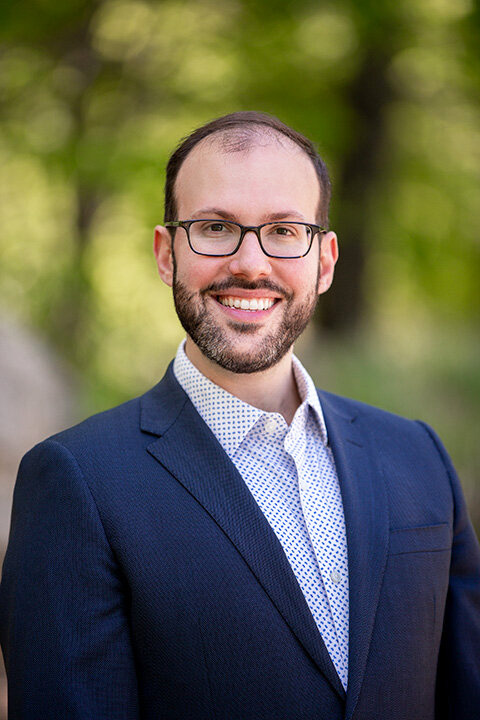
Before joining Temple Beth Tikvah in Madison, Rabbi Danny Moss served as assistant rabbi at Temple Israel in Westport, where he had arrived in July 2017 after receiving his ordination from Hebrew Union College-Jewish Institute of Religion.
A native of Chicago, Moss is a graduate of Oberlin College with degrees in Jewish Studies and Comparative Religion.
While at Temple Israel, he spearheaded initiatives in Adult Jewish Learning, Caring Community, and CONECT (community organizing for social justice).
Before his post in Westport, Moss served as a student rabbi at Brooklyn Heights Synagogue in New York, and as an educator and youth director at Temple Micah in Washington, D.C. He completed internships at Fairmount Temple in Cleveland and Temple Israel in Boston.
Moss studied in Israel for two years and has served as a tour guide for teens traveling through Israel and Europe. During the course of his rabbinical studies, he also administered the tefilah curriculum at Congregation Emanu-El in New York and served as a critical care chaplain at a Chicago hospital.
A 15-summer alumnus of Union for Reform Judaism Camp OSRUI in Oconomowoc, Wisconsin, Moss has also studied cantorial arts and plays several musical instruments. According to his bio, “You might find him singing silly songs, teaching Talmud, dreaming up experiential family learning activities, or re-enacting epic lightsaber duels with B’nei Mitzvah students who share his love for Star Wars.”
Rabbi Moss lives in Guilford with his wife, Rabbi Susan Landau Moss.
Rabbi Joshua Ratner
Congregation Beth El, Fairfield
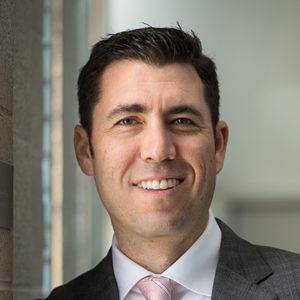
Rabbi Joshua Ratner has joined Congregation Beth El in Fairfield as its new spiritual leader. Previously, he served as director of advocacy for JLens, a New York-based network of more than 9,000 investors, seeking to “apply a Jewish lens to the modern context of values-based impact investing.”
“COVID really helped me reframe what I felt to be my rabbinic priorities and I really missed, when the pandemic started, not being in a community, in a place where I could be a relational presence for those who were suffering in so many different ways from the pandemic,” he says. “While I still found the work at JLens to be intellectually stimulating and engaging, I felt that the piece of my rabbinic identity that was predicated on interactions with other people and daily communications with other people and being there for people when they needed more of a pastoral presence was something that just felt strongly missing.”
So, he decided to see if he could find a community that would be a good fit — and he found one at Beth El.
A native of San Diego, California, Ratner worked as a corporate attorney for five years before entering rabbinical school. He was ordained by the Jewish Theological Seminary in May 2012 and earned a master’s degree in Midrash and a certificate in pastoral care. While in rabbinical school he was a Rabbinic Fellow for the Jewish Council for Public Affairs. He served as rabbi of the now defunct Congregation Kol Ami in Cheshire from 2012-2014.
Before joining JLens, Rabbi Ratner was the executive director of the Jewish Community Relations Council (JCRC) of the Jewish Federation of Greater New Haven for four years. At the same time, he served as associate rabbi and director of Jewish Engagement at Yale University.
“My primary goal is to be here for my congregants in whatever ways they need as they continue to struggle through the uncertain, present and future of what it means to be in community at a time when we can only be together in some ways and often masked and all that. Still so many people are suffering, whether it’s physically or financially or emotionally and psychologically.”
He also wants to “reimagine what it means to be a community in late 2021.”
“With all the bad things that came with Covid, there’s also some silver linings of a burgeoning of creativity, of rethinking old paradigms and deciding what’s still important and what’s not,” he says. “So, [I want to help] our community think through what we want to look like going forward. Reimagining and restructuring will be an important piece of what I’m going to bring, and that ranges from thinking through our services and how we can make them more spiritually engaging to revamping our adult education curriculum and finding ways to stimulate people intellectually, with issues that they care about.”
Ratner would also like to expand Beth El’s presence in Fairfield and Fairfield County.
“What’s important to me is interfaith work and so I’m going to be working at Sacred Heart in their multi-faith chaplaincy center, working with students and to offer some support. My predecessor, Rabbi Kormis, had done that and created some important inroads into that community and so I will continue to maintain that; it’s a really important one for us.”







 Southern New England Jewish Ledger
Southern New England Jewish Ledger













